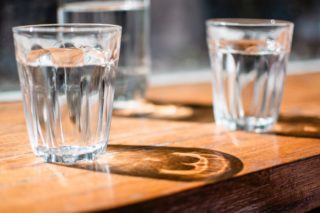Your skin can have a significant impact on your confidence and happiness; therefore, it’s good to be in-the-know about how to improve your skin’s complexion and texture. While you may have heard many myths about how to keep your skin looking healthy and glowing, there are proven techniques that can work if you stick to them.
Most of the time, it’s about making small lifestyle changes, while on other occasions, it could be as simple as trying out easy remedies.
If you are suffering from a skin condition or are hoping to discover methods of anti-aging, the tips below should come in useful:

1. Use sunscreen every day
You may only whip out sunscreen when you hit the beach on very hot days, but dermatologists suggest that you should wear it every day to protect your skin. Even if you spend most of the time indoors or live in a cooler climate, it’s not something you may even think about. However, what you may not realize, is that your skin is still exposed to sunlight pouring through the windows, which can lead to gradual aging. You don’t necessarily have to apply thick sunscreen; it could be as simple as using a daily moisturizer with an included SPF to your face and neck to prevent harmful sun damage affecting your skin.
2. Get enough sleep

Everyone loves their sleep, but did you know that the number of hours you get per night can impact the condition of your skin? Stress is one of the major factors as to why people aren’t getting the sleep they need, and therefore, your body is unable to rest and recuperate from the previous day.
When you don’t get enough sleep, your body loses the ability to repair itself –your skin included – which can increase the look of deep wrinkles, puffiness, and dark circles around the eyes.
Adults should aim to get at least 7-9 hours of sleep per night to help retain an excellent skin complexion, as well as providing several other health benefits.
3. Eat healthily
While eating healthily is a must keep your body healthy, and in good shape, it can also impact your skin’s appearance. To keep up a good complexion, you’ll need to re-evaluate the foods you’re eating. Importantly, for better skin you must avoid sugar and junk food.
![wild blueberry for better skin [longevity live]](https://longevitylive.com/wp-content/uploads/2018/09/berry-blue-blueberries-70862-320x213.jpg)
Many experts have concluded that your diet has a significant effect on your overall health and well-being and can be a trigger for several skin complaints. These include acne, aging, and cancer.
4. Stay hydrated
 Dehydration can lead to several health issues such as tiredness and colic, and it can also prevent your skin from aging well. It’s simple really. Better skin needs lots of water.
Dehydration can lead to several health issues such as tiredness and colic, and it can also prevent your skin from aging well. It’s simple really. Better skin needs lots of water.
Alongside using a great moisturizer, you should also be drinking plenty of water (two liters per day) to improve the condition of your skin. It would also be a good idea to install a humidifier in different rooms of the home to add extra moisture to the skin, especially during winter when the central heating is turned up.
5. Use hemp for better skin
Hemp is a wonder plant. This miracle of nature is bursting with skin benefits.
Hemp can add moisture to the skin and prevent breakouts. It can also improve skin conditions and reduce acne inflammation by regulating the skin’s oil production and preventing pores from becoming clogged. Hemp is also proven to help your skin look fuller and plumper. It reduces the effects of wrinkles and helps promote a glowing complexion thanks to its antioxidant qualities.

6. Think about the face wash you’re using
If you have dry skin, you may be making a huge mistake when it comes to the face wash that you’re using. Cleansers that contain harsh soaps can reduce moisture in the skin and leave it feeling sore. If you want better skin it would be best to choose one that’s best suited to sensitive skin types.
This simple switch could help prevent several skin conditions such as extreme dryness, eczema, and psoriasis, rather than having to treat them when you have a random flare-up.
7. Think about the medicines you’re taking

Sometimes, the medicines you take daily can bring on a breakout and cause you to suffer poor skin conditions. Spots and blemishes can occur when taking the likes of antibiotics and fertility pills, while anti-depressants and antihistamines can be the cause of very dry skin.
If you find your skin isn’t reacting well to a particular medication, you may wish to consider taking a lower dosage or having a chat with your GP to see if there are any other alternatives.
The Bottom Line
We hope that by following the above tips and tricks, you’ll notice a significant difference in your skin complexion and texture. While you may not see results overnight, you should start to notice an improvement over time.
Is sugar awful for your skin? Read more to find out.



![women [longevity live]](https://longevitylive.com/wp-content/uploads/2020/01/photo-of-women-walking-down-the-street-1116984-100x100.jpg)










